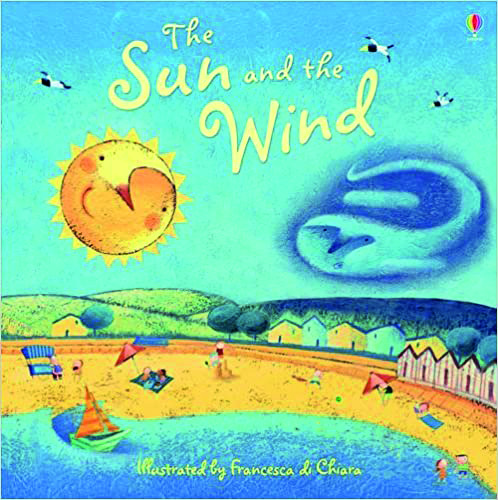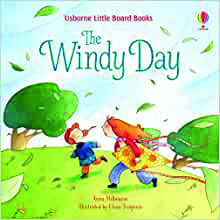
 One in ten people in the world is without electricity. Renewable energy technologies, along with improved energy efficiency, must be key to getting power to everyone.
One in ten people in the world is without electricity. Renewable energy technologies, along with improved energy efficiency, must be key to getting power to everyone.
The renewable energy share of final energy consumption has gradually increased – from 16.3 per cent in 2010 to 17.3 per cent in 2017 – but this needs ‘stepping up’ to meet long-term climate goals.
We can take access to energy for granted and don’t often consider what it is, where it comes from and how valuable a resource it is.
YOU CAN
- Discuss what energy means. What energy do we need to live and move? Brainstorm energy sources – windmills, sun, solar, batteries, electricity. Where in children’s homes is energy and what does it make work?
- Talk about eco management. Solar-panel installation generates an income from the feed-in tariff as well as using the energy that is made. Check out: www.solarforschools.co.uk and https://tradesmenprices.co.uk/solar-schools for inspiration.
- You could have electricity monitors in the setting showing the kilowattage being used. It is a visible way of seeing how, for example, not switching on lights impacts the environment because less power is being used.
Learning links
EYFS (2017) UTW states that ‘Enriching and widening children’s vocabulary will support later reading comprehension’.
Extension activities
 Read story books about the power of the sun and the wind, which are natural energy providers, such as The Sun and The Wind by Mairi Mackinnon and Francesca di Chiara. It is a lively retelling of Aesop’s fable where the sun and the wind compete to see which is stronger. Share The Windy Dayby Anna Milbourne and Elena Temporin, which could start discussions around the fun that children can have in the wind, such as flying a kite or watching seagulls gliding. Or, celebrate children’s sensory responses to the natural world with the Whatever the Weatherseries by Carol Thompson.
Read story books about the power of the sun and the wind, which are natural energy providers, such as The Sun and The Wind by Mairi Mackinnon and Francesca di Chiara. It is a lively retelling of Aesop’s fable where the sun and the wind compete to see which is stronger. Share The Windy Dayby Anna Milbourne and Elena Temporin, which could start discussions around the fun that children can have in the wind, such as flying a kite or watching seagulls gliding. Or, celebrate children’s sensory responses to the natural world with the Whatever the Weatherseries by Carol Thompson. Make energy links to previous Sustainable Development Goals; for example, how do we know when our ‘energy’ has run out? Encourage active sessions which generate puffing, sweating and red faces.
Make energy links to previous Sustainable Development Goals; for example, how do we know when our ‘energy’ has run out? Encourage active sessions which generate puffing, sweating and red faces.
Learning links
EYFS (2017) UTWU nderstanding the world involves guiding children to make sense of the physical world.
EYFS (2017) PD Move energetically, such as running, jumping, dancing, hopping, skipping and climbing.
Extension activities
- Go on a ‘wind walk’ and look at how the environment changes as a result of the weather. Observe how the branches sway on trees, or how on some beaches, sand stacks up into dunes and the long grasses blow in the breeze.
- Look at videos of hurricanes, such as: https://bit.ly/3cfHHTi.
- Make a wind box for outside play. Fill it with scarves and materials of various lengths, textures and weights to get different effects. You could also add paper windmills, feathers, wind chimes and kites.
- Make a windmill from recycled materials, such as this paper cup one: https://bit.ly/3g9koMb.
- Check out images of windmills and wind farms and discuss how they work.
- Identify what uses electricity in the setting. How does it work? Ensure you highlight any dangers of sockets and batteries.
- You could introduce a traffic-light system of light switches – red sticker: do not touch; orange sticker: consider if it’s necessary to use (decision making); green sticker: yes, you can turn it on.
- Conduct your own experiment by making a bulb light up. You’ll need: MES 1.5V light bulbs, batten bulb holders, crocodile leads, flat-shaped 4.5V batteries. Introduce the components to the children by name, discuss the different elements of each part and let the children investigate.
- Introduce a battery recycling bin.
Learning links
EYFS (2017) UTW Understand some important processes and changes in the natural world, including the seasons and changing states of matter.
EYFS (2017) C&L Offer explanations for why things might happen.
Diane Boyd is a senior lecturer, early years, at Liverpool John Moores University, d.j.boyd@ljmu.ac.uk.
Further information
- This series explores meaningful and practical ways to introduce young children to UNESCO’s 17 Sustainable Development Goals (SDGs). See also ‘All about… Early Childhood Education for Sustainability’ by Dr Diane Boyd, www.nurseryworld.co.uk
- https://bit.ly/3z3rVEP









